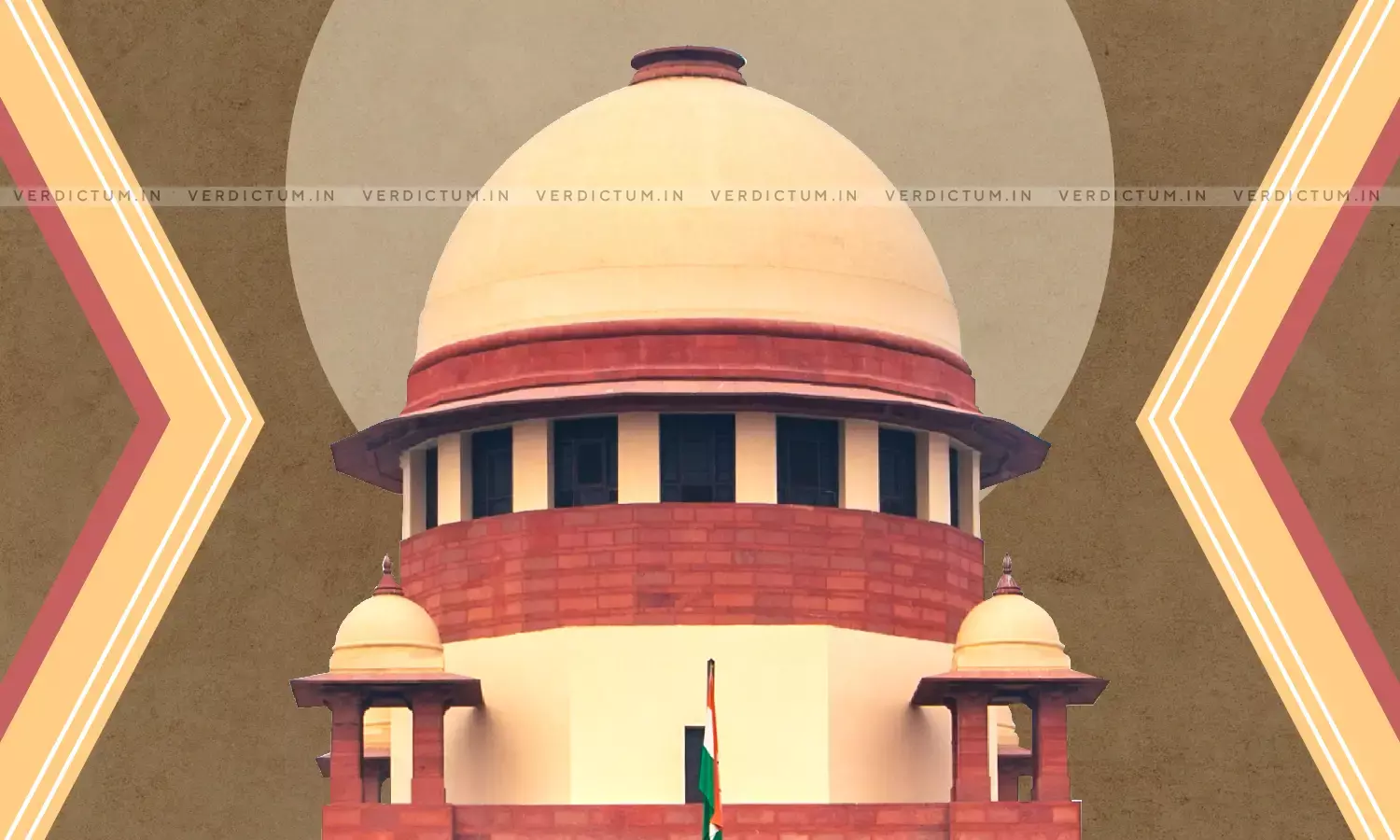SARFAESI Act Will Override Central Excise Act, Dues of Secured Creditor To Have Priority Over Central Excise Deptt. - SC

A two-judge Bench of the Supreme Court comprising Justice L Nageswara Rao and Justice Vineet Saran while relying upon the judgment rendered in Union of India vs. SICOM Ltd., 2009 2 SCC 121 has held that the provisions contained in the SARFAESI Act, 2002, even after insertion of Section 11E in the Central Excise Act, 1944 w.e.f. 08.04.2011, will have an overriding effect on the provisions of the Act of 1944.
Mr. Dhruv Mehta, Senior Advocate appeared on behalf of the Appellant Bank while Mr. KM Nataraj, ASG appeared for the Respondent.
Impugned before the Apex Court was the judgment of the Allahabad High Court wherein the writ petition filed by the Appellant was dismissed.
The Commissioner, Customs and Central Excise, Ghaziabad issued a show-cause notice [SCN] to Rathi Ispat Ltd [RIL] for evasion of excise duty and violation of Central Excise Act. Demand was confirmed and a penalty was imposed. This order was set aside by CESTAT on grounds of violation of principles of natural justice and the matter was remanded back to de novo proceedings.
RIL availed credit facilities under various schemes from a consortium of banks with Appellant/PNB being the lead bank and mortgaged all its movable and immovable properties. RIL also created a charge on both the assets and block of the company.
The Commissioner confirmed the demand and also ordered for confiscation of all land, building, plant, machinery.
PNB issued notice to RIL under Section 13(2) of the SARFAESI Act. Section 13(4) notice was also issued.
The office of Assistant Commissioner informed the bank that the property was already confiscated under Rule 173Q(2) of 1944 Rules and an appeal was pending; the matter being sub judice.
PNB replied stating that the properties in question had been mortgaged with the bank and RIL was required to satisfy the debts. PNB took symbolic possession of properties. PNB was informed by the Assistant Commissioner that properties of RIL should not be dealt with without their written consent.
The Customs Department contended that possession of property could not be taken by PNB in view of the fact that those stood confiscated by orders passed by the Commissioner.
PNB filed a writ before the High Court challenging the orders of confiscation. The High Court dismissed the writ. Hence, the instant appeal. The two issues argued before the Court by the PNB were as follows.
i) Whether the Ld. Commissioner Custom and Central Excise could have invoked the powers under Rule 173(Q)(2) of Central Excise Rules, 1944 on 26.03.2007 and 29.03.2007 for confiscation of land, buildings, etc., when on such date, the rule 173Q(2) was not on the Statue Book having been omitted w.e.f. 17.05.2000?
ii) Whether in the absence of any provisions providing for First Charge in relation to Central Excise dues in the Central Excise Act, 1944, the dues of the Excise department would have priority over the dues of the Secured Creditors or not?"
The Court noted that it did not find any merit in the submission of the respondent that notwithstanding the omission of Section 173Q(2) from the 1944 Rules vide notification dated 12.05.2000, Respondent No. 3 was entitled to continue the proceedings on account of Section 38A(c) and Section 38A(e) of the Central Excise Act, 1944, read along with Section 6 of the General Clauses Act, 1897.
On the issue concerning the priority of secured creditor's debt over that of the Excise Department, the Court held that the High Court misinterpreted the issue to state that the question of first charge or second charge over the properties, would not arise.
The Court made the following crucial observations:
"In view of the above, we are of the firm opinion that the arguments of the learned counsel for the Appellant, on the second issue, hold merit. Evidently, prior to insertion of Section 11E in the Central Excise Act, 1944 w.e.f. 08.04.2011, there was no provision in the Act of 1944 inter alia, providing for First Charge on the property of the Assessee or any person under the Act of 1944. Therefore, in the event like in the present case, where the land, building, plant machinery, etc. have been mortgaged/hypothecated to a secured creditor, having regard to the provisions contained in section 2(zc) to (zf) of SARFAESI Act, 2002, read with provisions contained in Section 13 of the SARFAESI Act, 2002, the Secured Creditor will have a First Charge on the Secured Assets. Moreover, section 35 of the SARFAESI Act, 2002 inter alia, provides that the provisions of the SARFAESI Act, shall have overriding effect on all other laws. It is further pertinent to note that even the provisions contained in Section 11E of the Central Excise Act, 1944 are subject to the provisions contained in the SARFAESI Act, 2002."
The Court held that "the confiscation orders, in the present case, deserve to be quashed because the confiscation orders themselves lack any statutory backing, as they were rooted in a provision that stood omitted on the day of the passing of the orders. Hence, it is this inherent defect in the confiscation orders that paves way for its quashing and not merely the fact that a security interest is created in respect of the very same property that the confiscation orders dealt with."
The Court held that Commissioner could not have invoked powers under Rule 173Q(2) of the Central Excise Rules when on such date the said Rule was not in Statute books having been omitted. Furthermore, the Court held that dues of PNB will have priority over dues of the Central Excise Department.
The appeal was accordingly allowed, and the confiscation orders passed by the Commissioner were quashed.
Click here to read/download the Judgment

